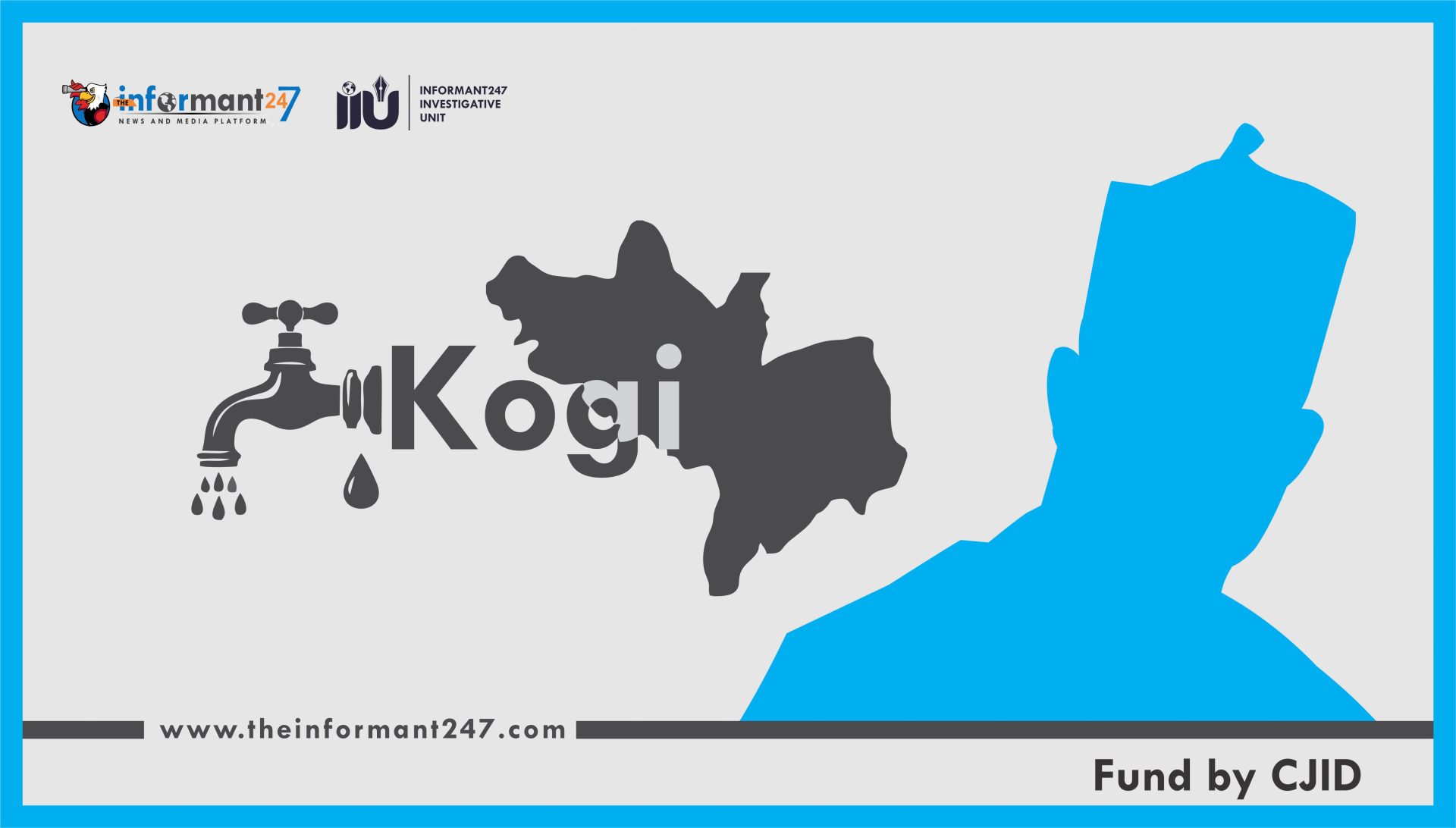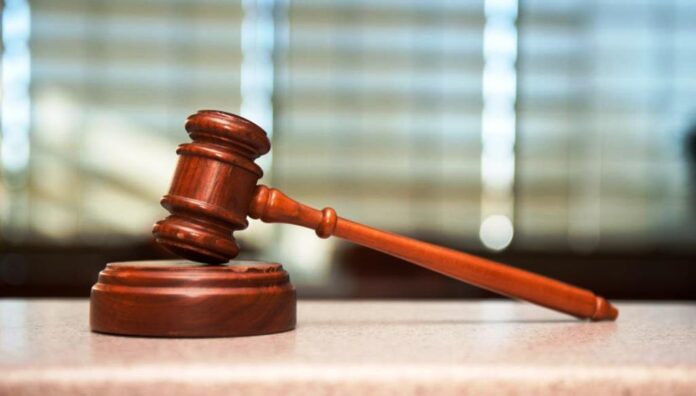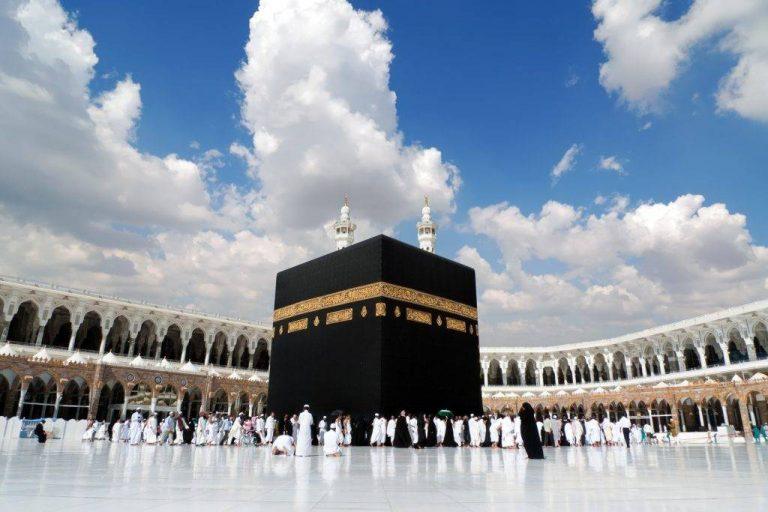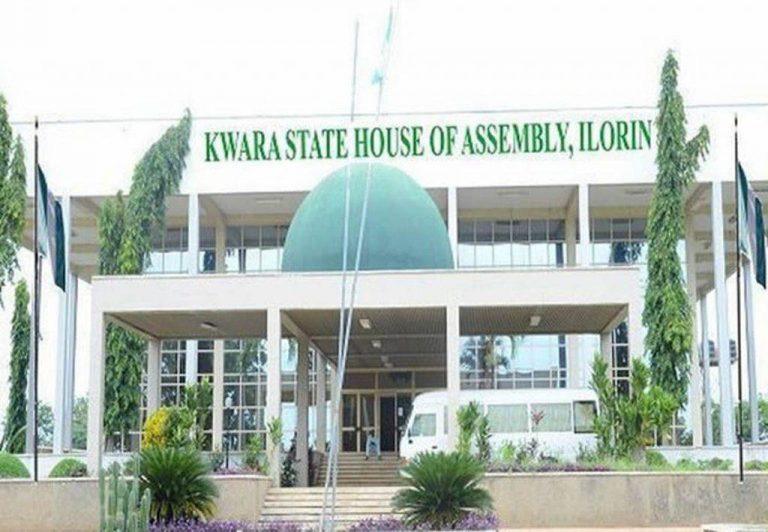Potable water scarcity worsens in Kogi despite billions of naira spent on public water projects
Kogi State is rich in water resources. The Niger and Benue, Nigeria’s largest rivers, meet in Lokoja, the state’s capital, earning the Kogi the moniker of Confluence State. However, water-borne diseases are rife as most residents lack access to potable water, including in Lokoja.
Balikis Azeez, 45, lives in Ganaja village and trades at a spot along the Victory community/Nyamanyama Road in Lokoja
“The last time we had water in our area was last year, for a brief period. Before that time, there was no water for a long time,” Mrs Azeez, who was seven months pregnant when this reporter met her on 13 August under a canopy where she sells roasted maize, said.
“This year, there has not been water, so it’s just borehole water”, she continued. “The borehole water is not drinkable, so we use it for cooking and washing while we buy sachet water to drink.”
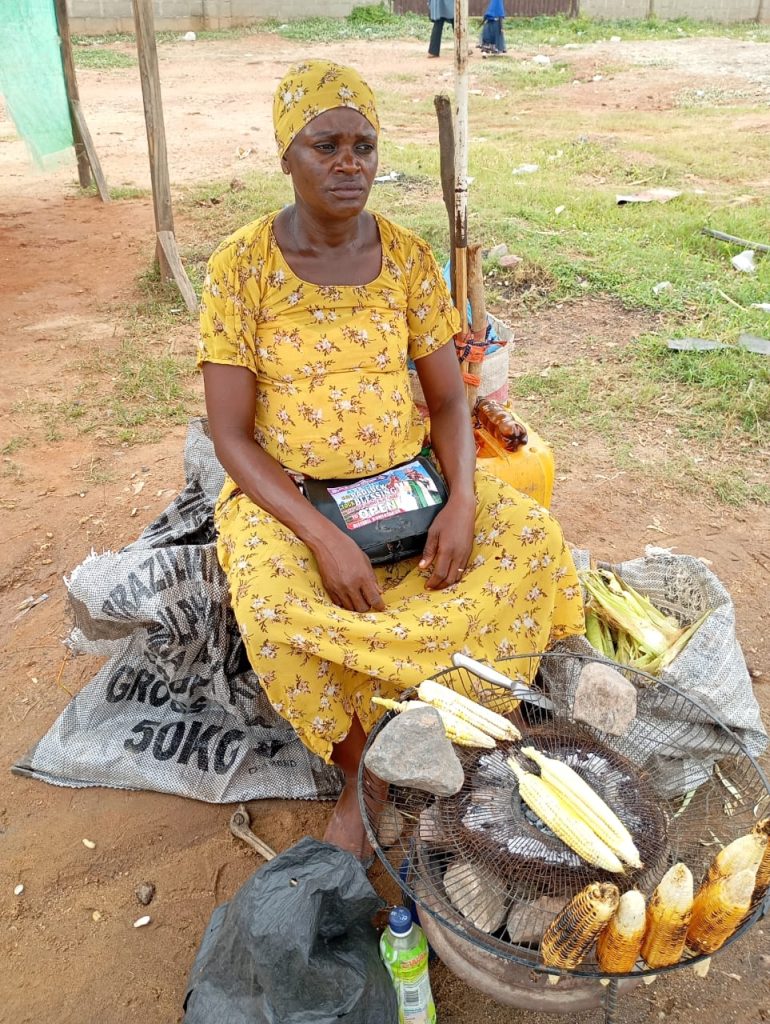
Juwera Amos, another resident of Lokoja, said the community has no access to potable water.
“There is no borehole on this street, so we drink sachet water. We did not have water for more than two years until last year, and it only flowed for a week,” said Mrs Juwera, 52, who is a hairdresser along the Waterworks Road in Ganaja village, Lokoja.
A water vendor, Joshua Moses, said he rides long distances on his motorcycle to supply water to customers because taps do not flow in many parts of the state capital.
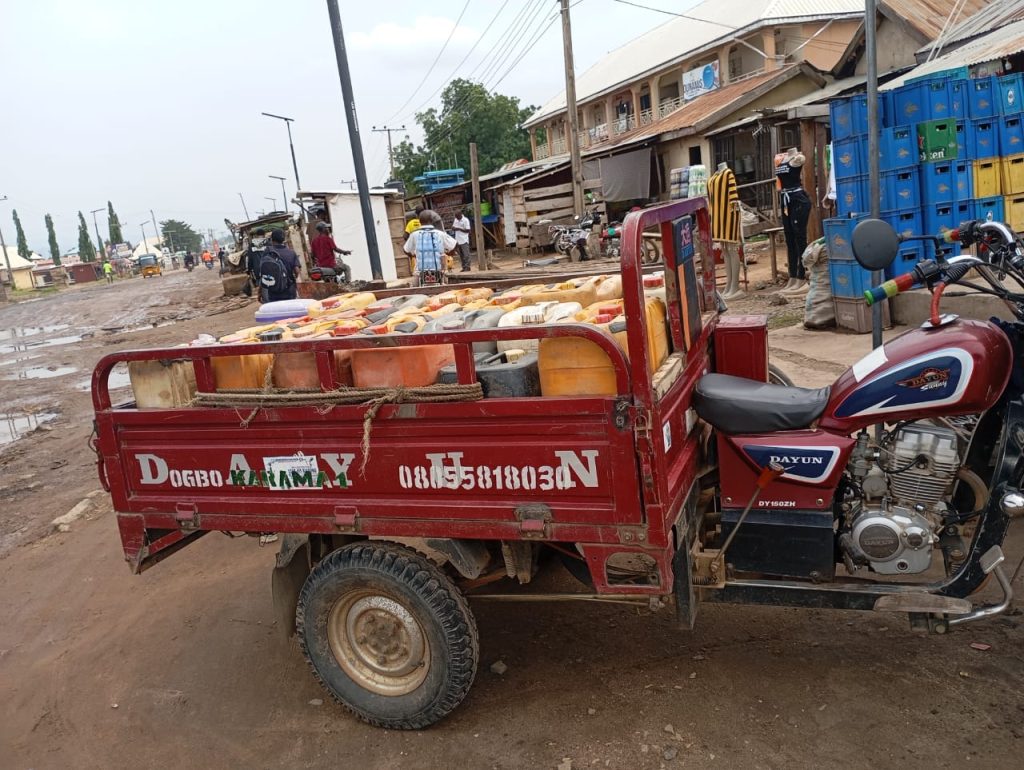
We buy water from boreholes
“I buy water from boreholes and sell it to my customers in gallons of 24, which I sell for N3,000,” Mr Joshua said.
Ironically, the Greater Lokoja Water Treatment plant of the Kogi State government along the Eegoja Road in Ganaja village is situated near the area.
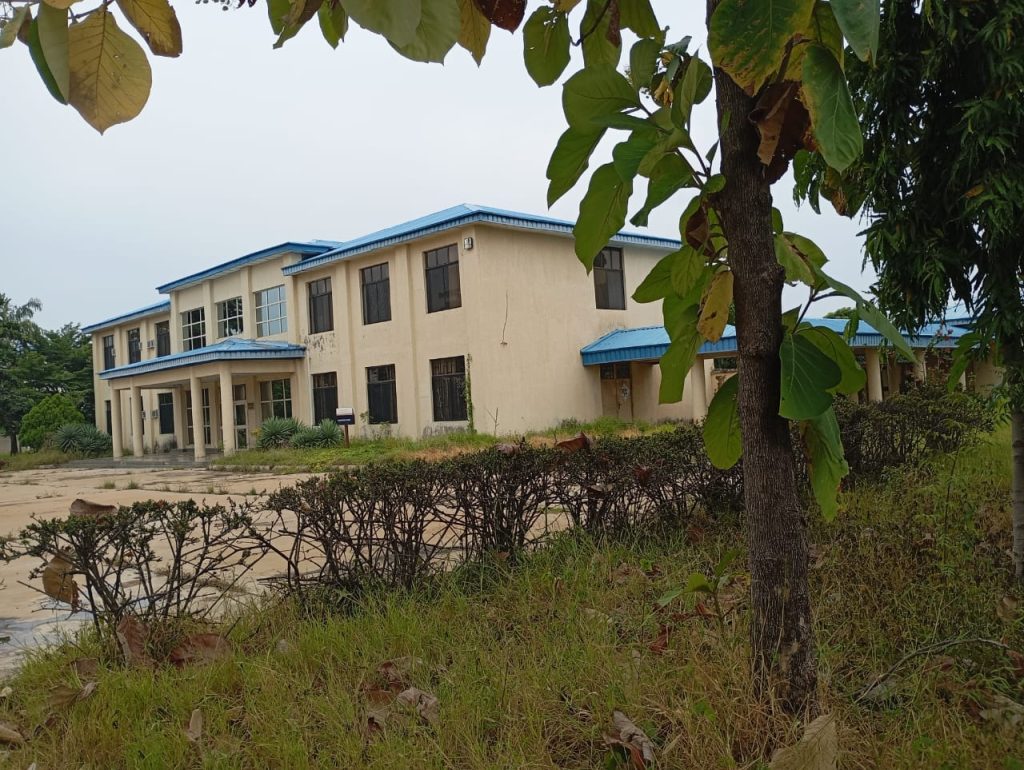
During a visit on 13 August 2024, the reporter met the gate locked. A peep inside revealed a compound covered by weeds and shrubs, indicating that the facility had been abandoned for a long time.
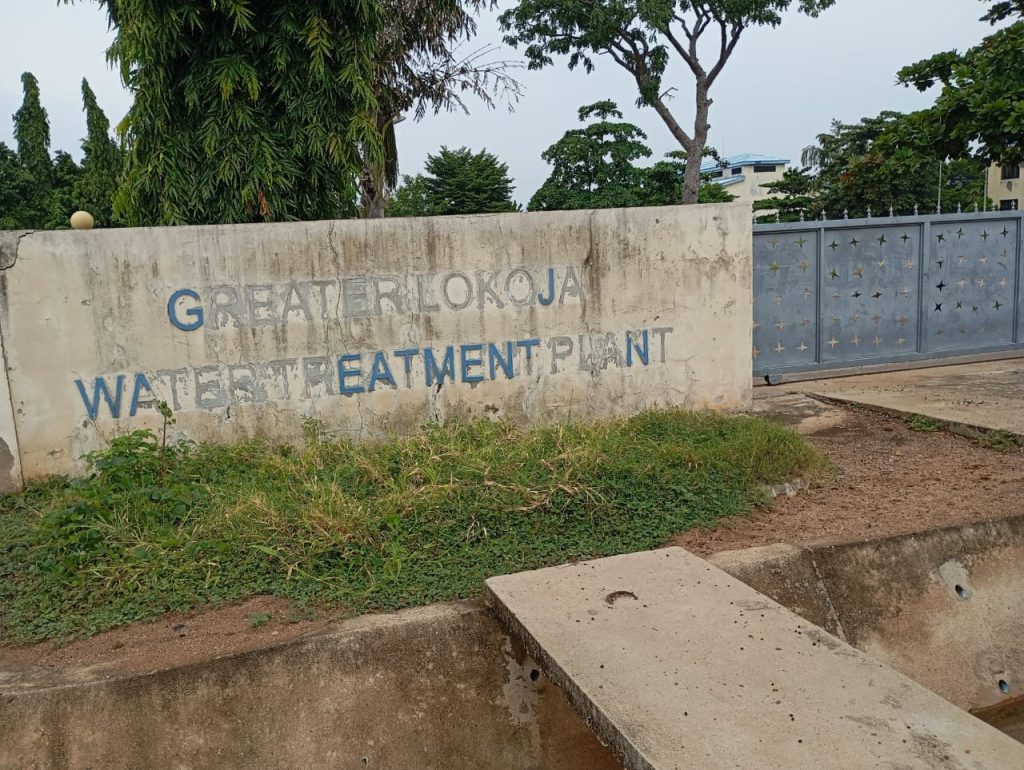
A nearby resident told this reporter that the last time he saw workers at the plant was June or July when their withheld salaries were being paid. He said children open the gate often to pluck fruits in the compound.
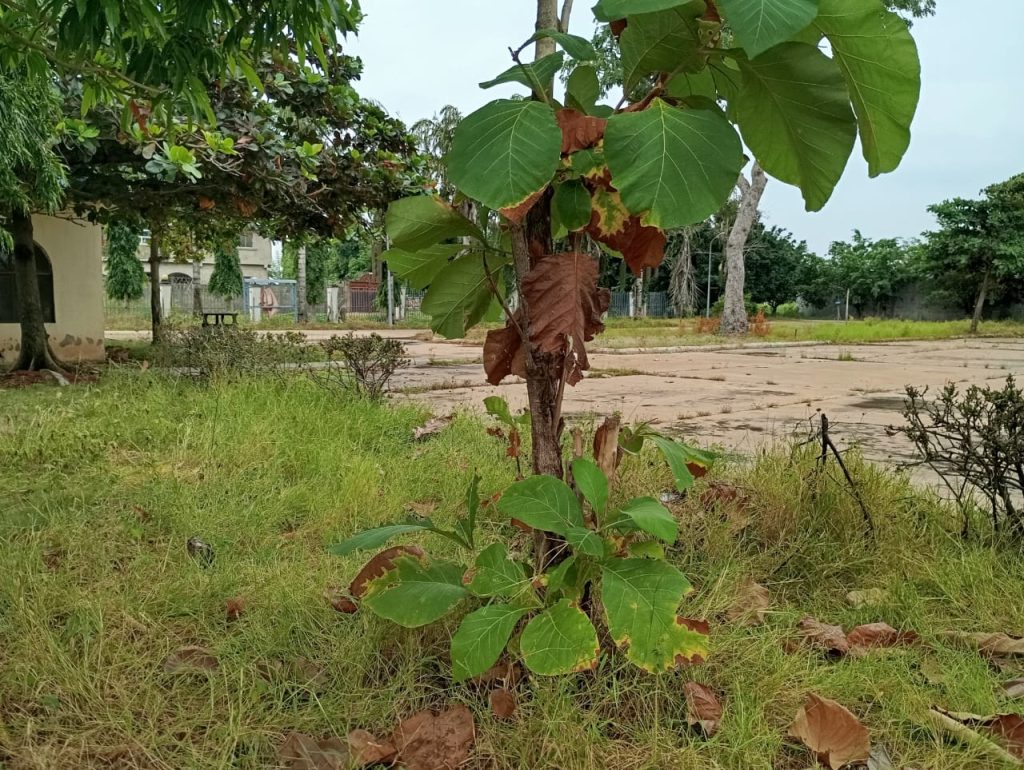
The source said the workers were moved to an annexe of the plant after the major one was abandoned.
In a WhatsApp chat, Umar Water, an administrative official at the facility’s annexe located at Felele, confirmed that the water plant was not operating.
LIKE LOKOJA, LIKE OTHERS
Rebecca Daniel, 35, a resident of Ibeke in Kuroko, Adavi LGA of Kogi State, told this reporter there is no public water supply in the community.
“There is no tap water in this community. We get water from wells and boreholes,” Rebecca said. “During the dry season, the wells dry up, so we rely on boreholes. I trek a long distance to buy water from a borehole owner.
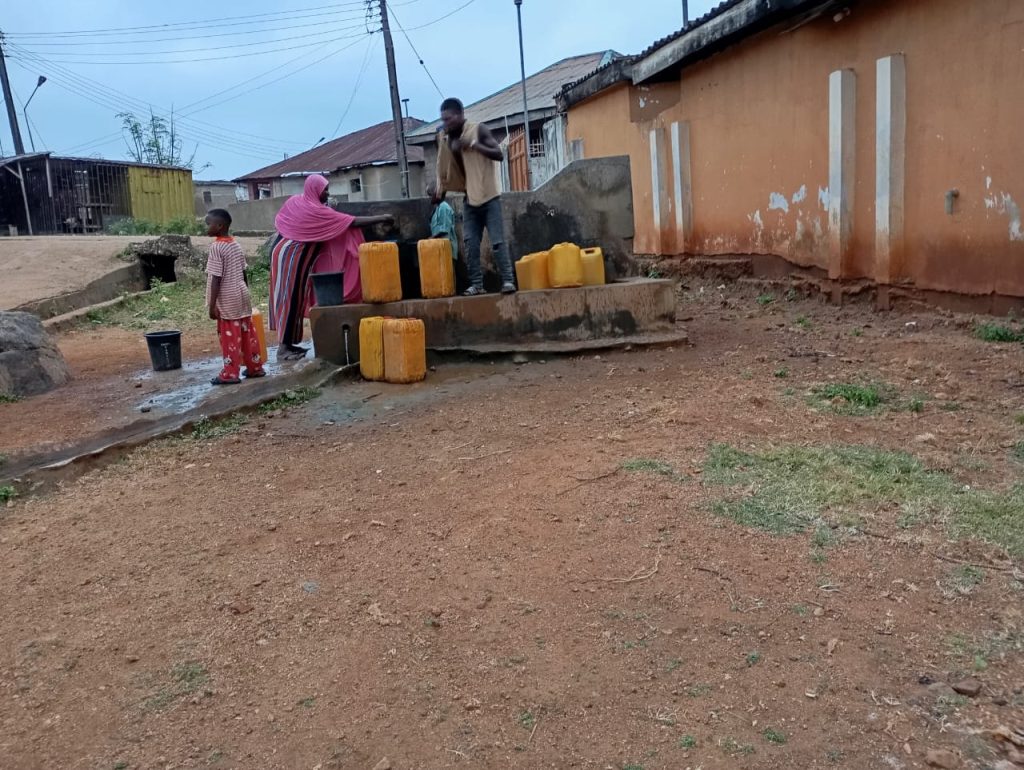
The situation is the same in Inoziomi and Ibeke. A woman popularly called Mama, who sells akara near an abandoned borehole, said residents go through much stress to get water.
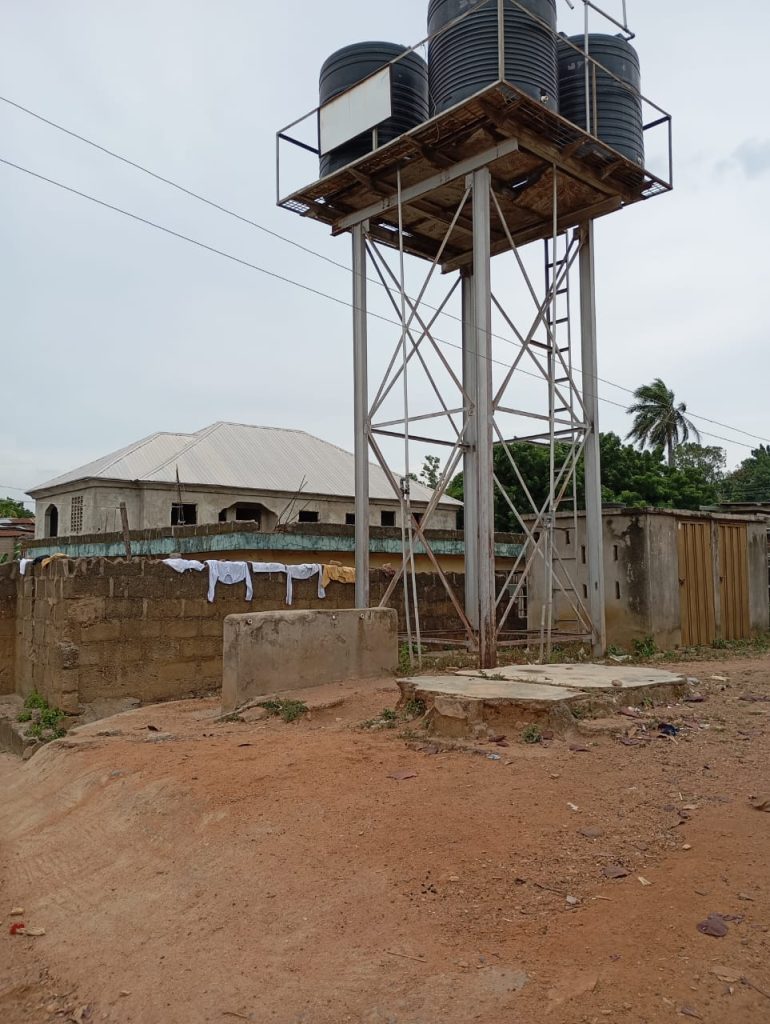
“We get water from those with wells in their compounds. The borehole dug by the government is no longer working. I close my business during the dry season when I do not get water from the wells and boreholes. The stress of searching for water has affected my health,” she said.
Due to water scarcity, a health worker at a clinic in Adavi LGA said it is always challenging to perform surgeries on patients.
“We use rainwater for child deliveries because there is no borehole anywhere near the clinic. Water can only use the water from our well for mopping”, the worker said, pointing at a well inside the premises.
“We frequently diagnose patients with water-borne diseases, with cholera the most common,” she said.
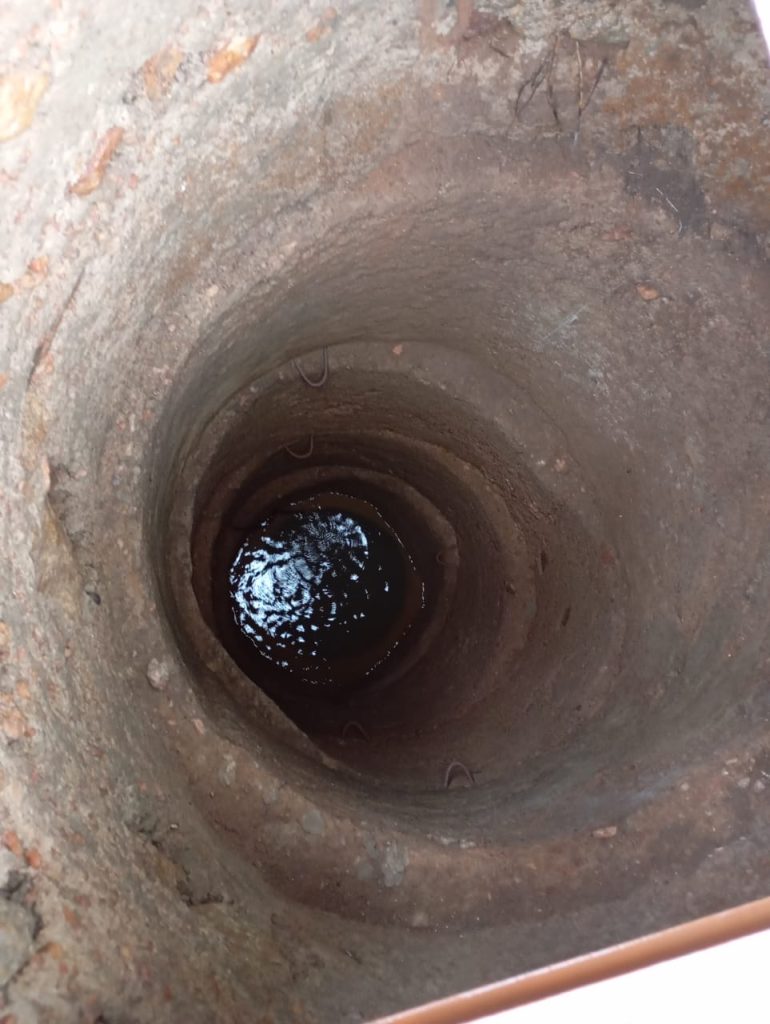
This reporter noticed a pipe channelled through the roof to collect rainwater into a drum inside the labour room.
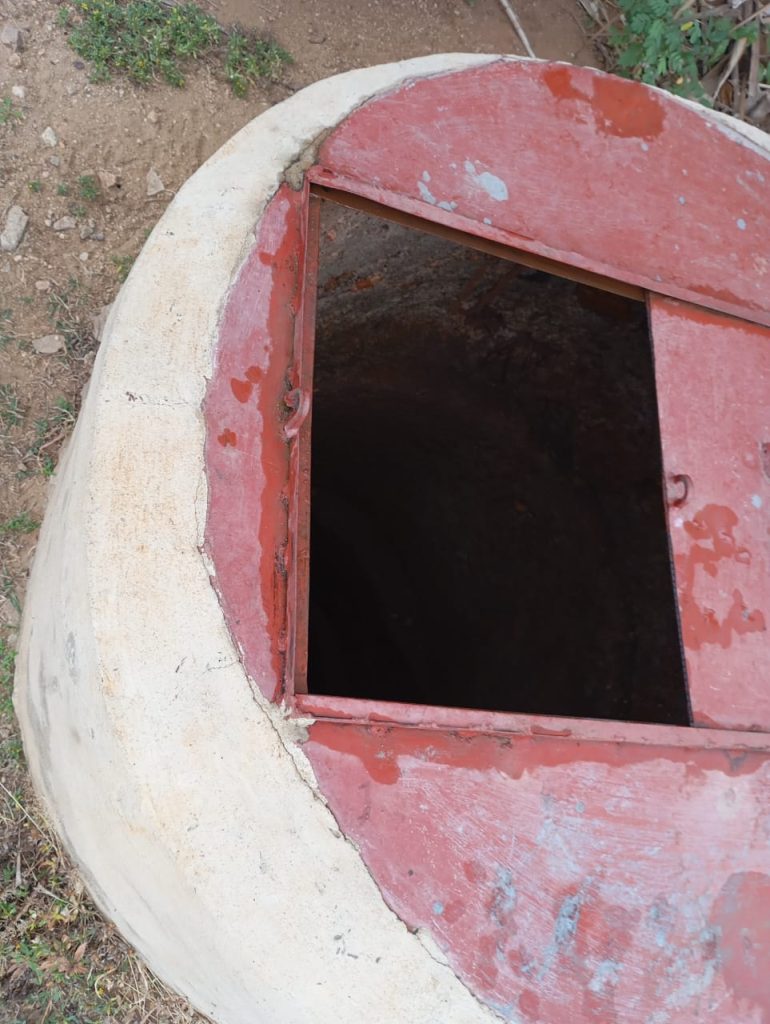
“In cases of emergency like child labour, we use the rainwater since the borehole is far from the clinic, and it has to be paid for. You can’t afford any slip-up in an emergency, so you have to look for possible alternatives, which sometimes might be harmful to your health. But since we have no choice, we use what we have. “
Okene Water Works
In the Okene Local Government Area, residents lack access to potable water, including communities close to public water work.
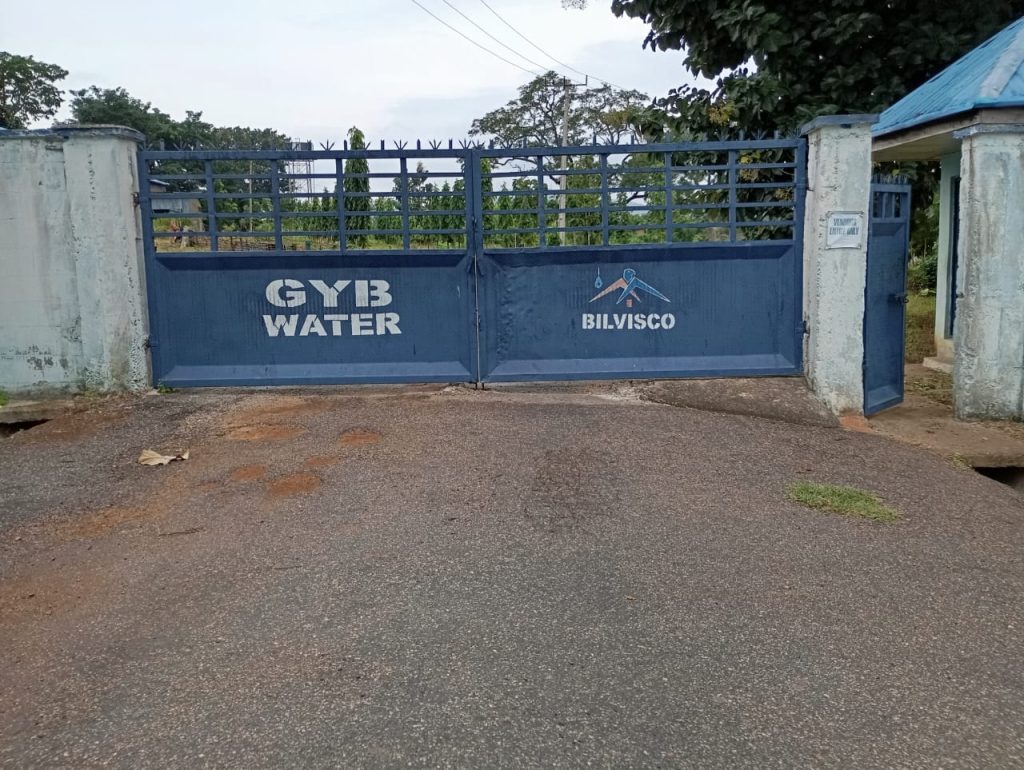
A resident of Lafiya in Okene LGA, who identified herself only as Esther, said community members face awful challenges trying to source water.

“We cross the roads to look for water, especially during the dry season. The boreholes here stopped working almost two years ago. The people sent to repair them said they were not well dug. Nearly all the boreholes in our area are not working. Even the wells that they dug have no water.
Esther added, “The water has to be treated before we drink it, or you can go for pure water (sachet water).”
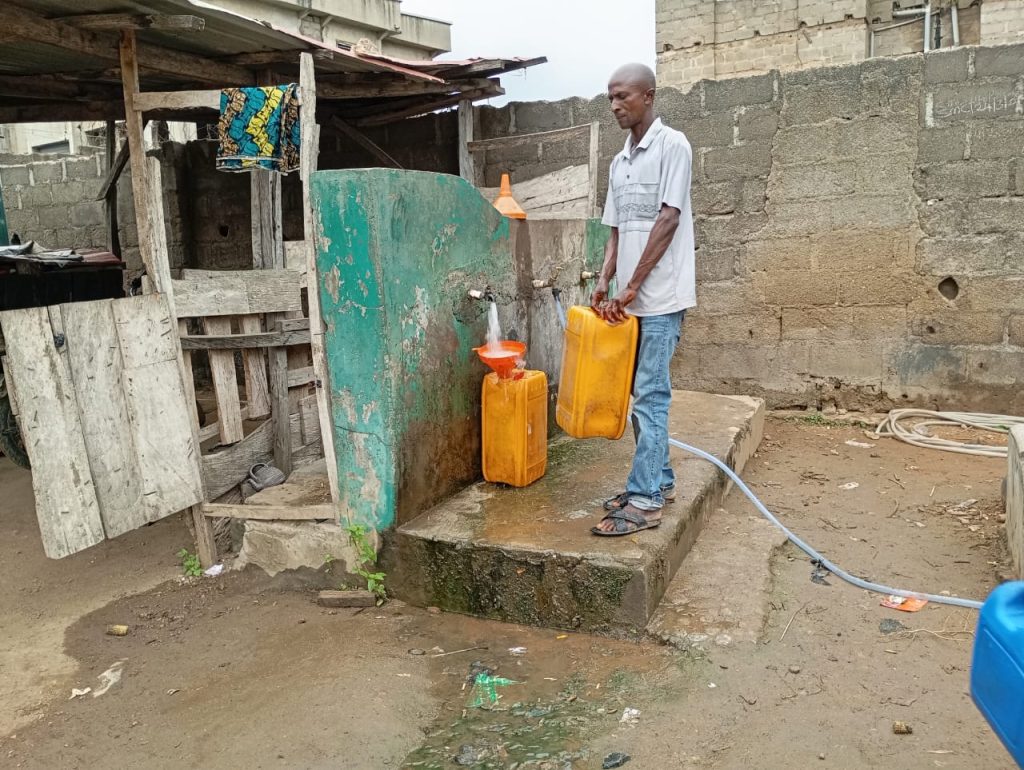
An Okene resident, who identified himself as Joseph, was spotted fetching water from a borehole located a stone’s throw from the Okene Water Works. The borehole was built by the community, but it sells its water.
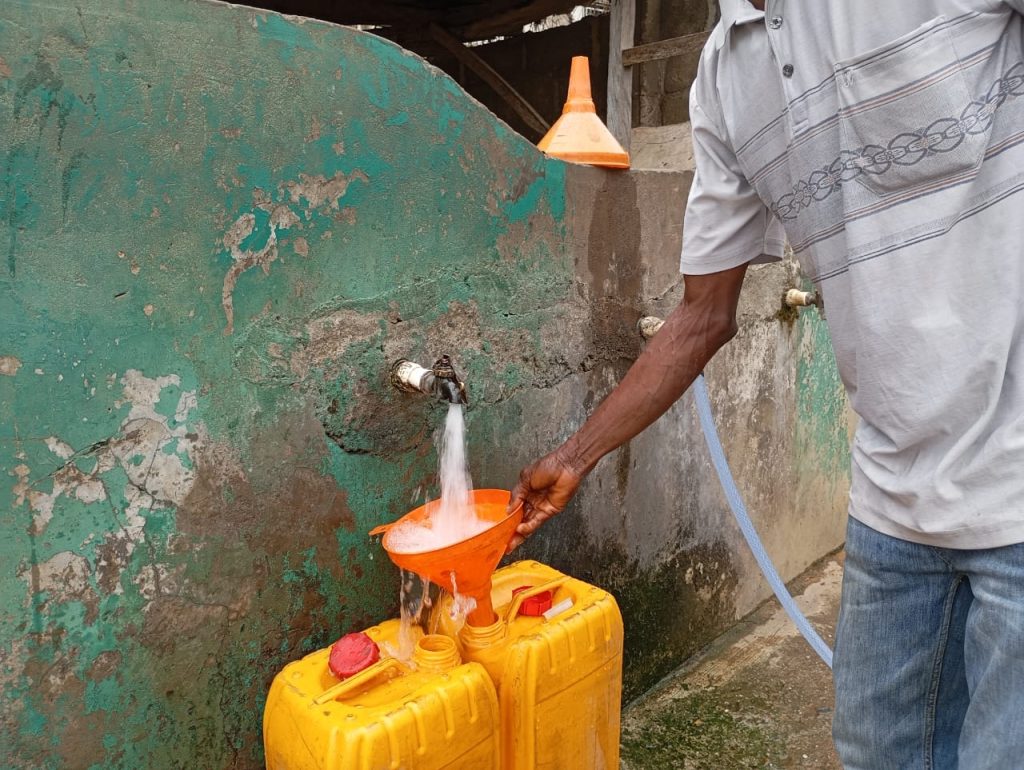
Joseph said, “Our major problem is that we don’t have potable water. If you see any functional borehole around here, it is built by the community. But Senator Ahmed Ogembe donated one to us, which is also working.”
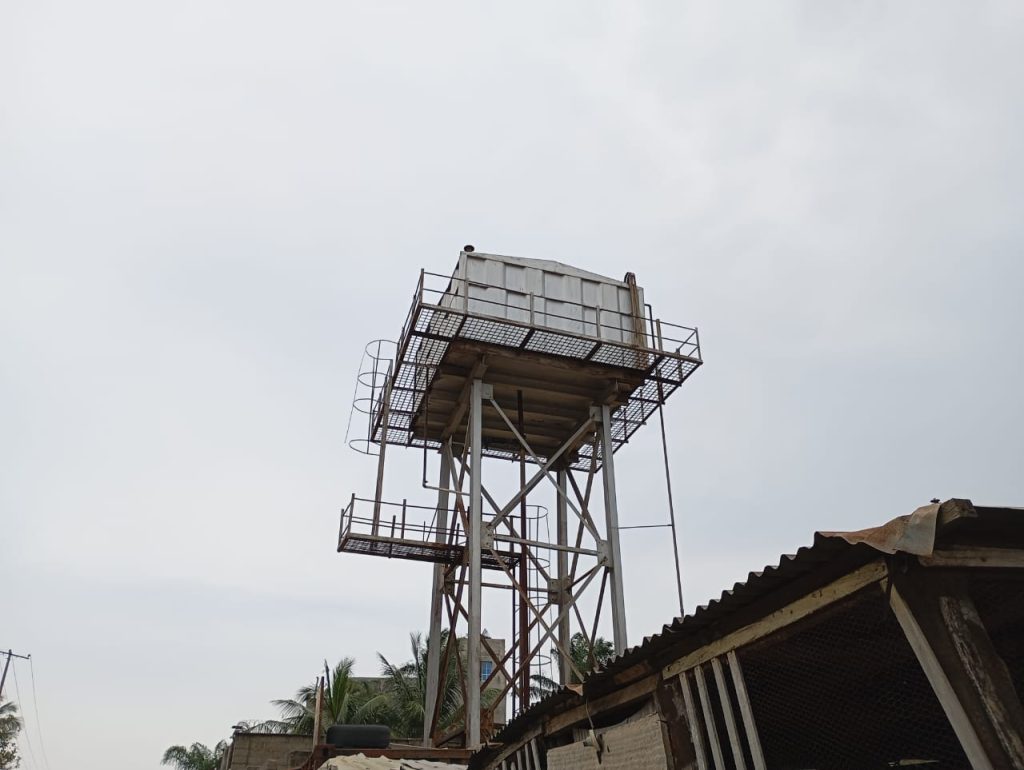
During a visit to the Okene Water Works facility in August 2024, the reporter noticed that the machines and equipment were in good condition. However, the water reticulation was not functioning. This has stopped the facility’s operation and denied the surrounding communities water supply.
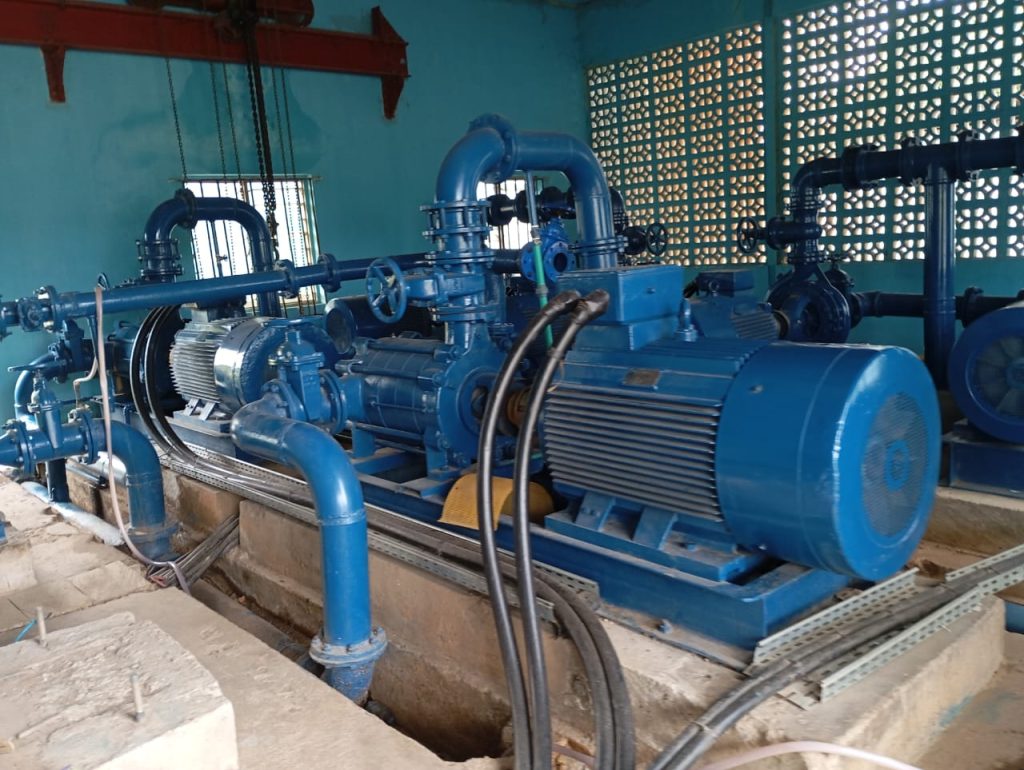
Huge budgetary interventions
In February 2024, the state Commissioner of Water Resources, Yahaya Mohammed Danladi Farouk, during a working visit to Okene Water Board and Ekuku Water Work facilities, said the state government was determined to ensure that residents “henceforth enjoy a steady inflow of water supply in Okene and its environs.”
The commissioner added, “Governor Ahmed Usman Ododo is very much concerned about the well-being of Kogites and the challenges faced in the water sector in recent times. I assure you that his Excellency will deliver on his campaign promises.”
Mr Farouk said arrangements had been concluded for the old Lokoja Water Works and Okene Water Works to begin supplying water to residents of the Lokoja metropolis and other parts.
However, many months after the promises, the Okene Water Works and Old Lokoja Water Works remained redundant.
Water-borne health risks
Contaminated water poses serious health risks. One of the most significant risks is the spread of waterborne diseases, including cholera, typhoid fever, and dysentery, each of which can lead to severe dehydration, diarrhoea, and, in extreme cases, death.
Between January and August 2023, 1,118 cholera cases were reported in Kogi State, reflecting a concerning trend in public health.
Over 500 cases of typhoid fever and more than 300 cases of dysentery were also reported in the same period. The data highlights the urgent need for improved water infrastructure and public health interventions in the state.
“Unsafe water consumption poses a significant risk to human health and can be fatal without prompt care and preventive measures,” warns AbdulMajeed Opeyemi Agboola, a health promotion and prevention care specialist.
The Modern Microbiologist and Antimicrobial Resistance (AMR) advocate said, “The continuous consumption of unsafe water from contaminated sources is detrimental to the health of vulnerable populations and can lead to various waterborne diseases caused by their respective pathogens. Cholera, caused by the bacterium Vibrio cholerae, is one of the most prevalent diseases.”
Mr Agboola highlighted other serious health threats associated with lack of access to potable water. “Hepatitis A is a viral infection transmitted through contaminated water, while Giardiasis is a parasitic disease caused by the parasite Giardia lamblia.”
He urged the government to prioritise rehabilitating water systems and existing boreholes to prevent outbreaks.
“Health education campaigns should focus on proper hand hygiene and the chlorination of water within local government areas,” he added.
KOGI STATE WATERWORKS BUDGET

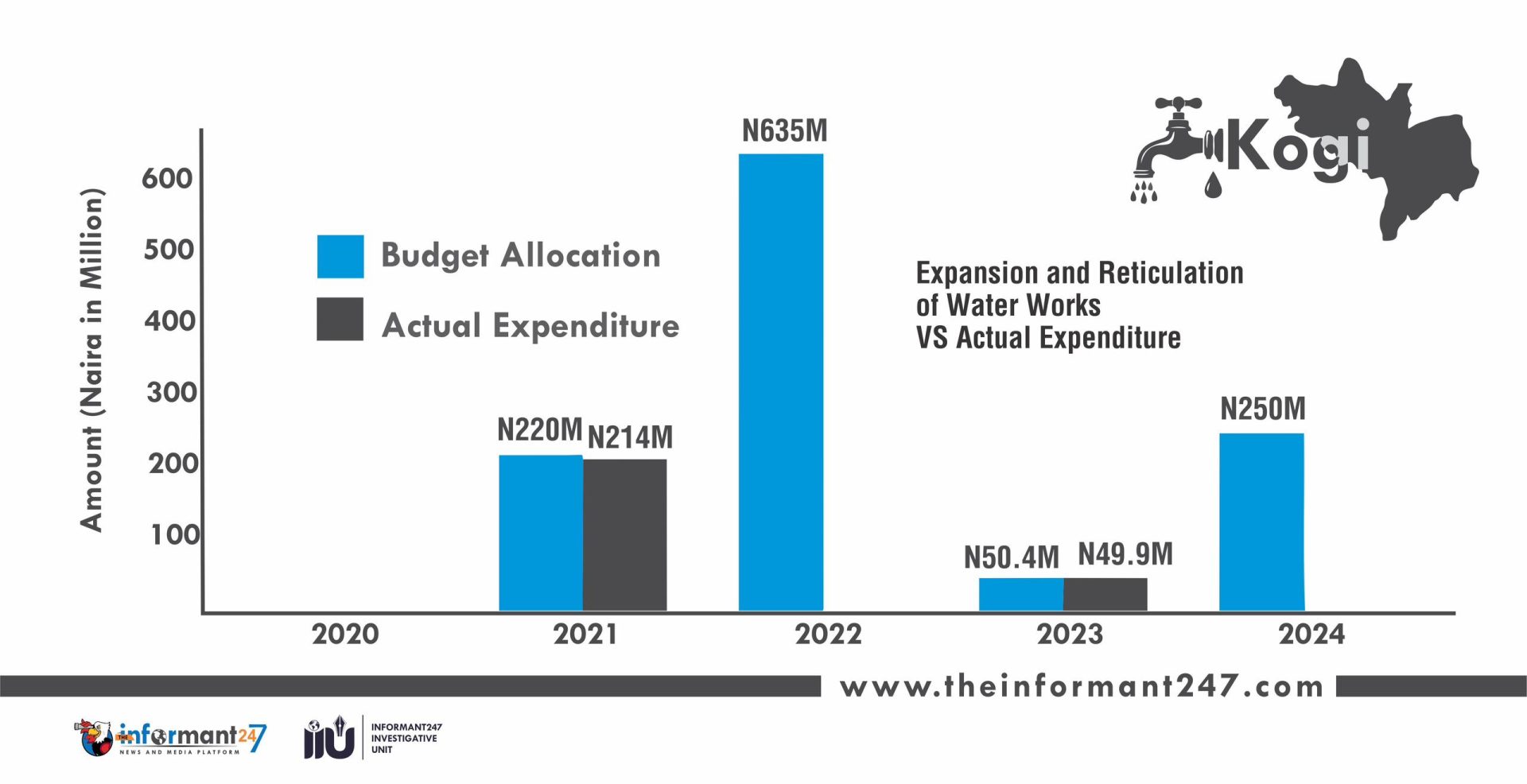
In its 2020 revised budget, the Kogi State government allocated ₦200 million to the Greater Lokoja Water Supply Scheme, but the actual expenditure was ₦135 million.
In 2021, the revised budget allocated ₦220 million for the “Expansion and Reticulation of Water Works for the “Expansion and Reticulation of Water Works”. The full-year actual expenditure was ₦214,115,099. For the Greater Lokoja Water Supply Scheme, the revised budget allocated ₦200 million while the full-year actual expenditure was ₦153,000,000 million.
In 2022, the revised budget allocated ₦635,000,000 for the Expansion and Reticulation of Water Works, but no actual expenditure was recorded for the full year. For the Greater Lokoja Water Supply Scheme, the revised budget allocated ₦240 million while the full-year actual expenditure was ₦225 million.
In 2023, the revised budget allocated ₦50,435,269 for the Expansion and Reticulation of Water Works, with full-year actual expenditure amounting to ₦49,935,269. The revised budget for the Greater Lokoja Water Supply Scheme was ₦240 million, with full-year actual expenditure being ₦225 million.
In 2024, the approved budget allocated ₦250 million for the Expansion and Reticulation of Water Works, with no actual expenditure reported for the full year. The approved budget for the Greater Lokoja Water Supply Scheme was ₦500 million, while full-year actual spending has not yet been disclosed.
WATER COMMISSIONER REACTS
When contacted via Whatsapp chat, the commissioner said a flood disaster crippled the state’s water supply infrastructure,
“We are trying to avoid reoccurrence of flood water damaging and crippling that asset in the magnitude it did in 2022. All tech evaluation concluded.”
He continued: “Against flooding, the facility will require either outright relocation from its present location or raising the electro-mechanical equipment above the last watermark (2022 flood).”
“Both are capital intensive, running into billions with a completion timeline of not less than 12-14 months. We are considering the 2nd option. Against this backdrop, the government have considered upgrading the old water works to serve the greater part of the metropolis (ongoing to come fully on stream this month) as efforts are geared towards all available funding options for Greater Lokoja Water Supply Scheme.”
On the Okene Water Works, where the government made substantial budgetary allocations for “Expansion and Reticulation,” the commissioner said, “It’s an ongoing work we inherited. We’re working on it, and soon, the contractor will be invited back to the site. Meanwhile, the waterworks are supplying water to those areas with no issues. Agasa and Upogoro communities have been reconnected and getting water.”
The story was supported with funding from the Centre for Journalism Innovation and Development (CJID)

